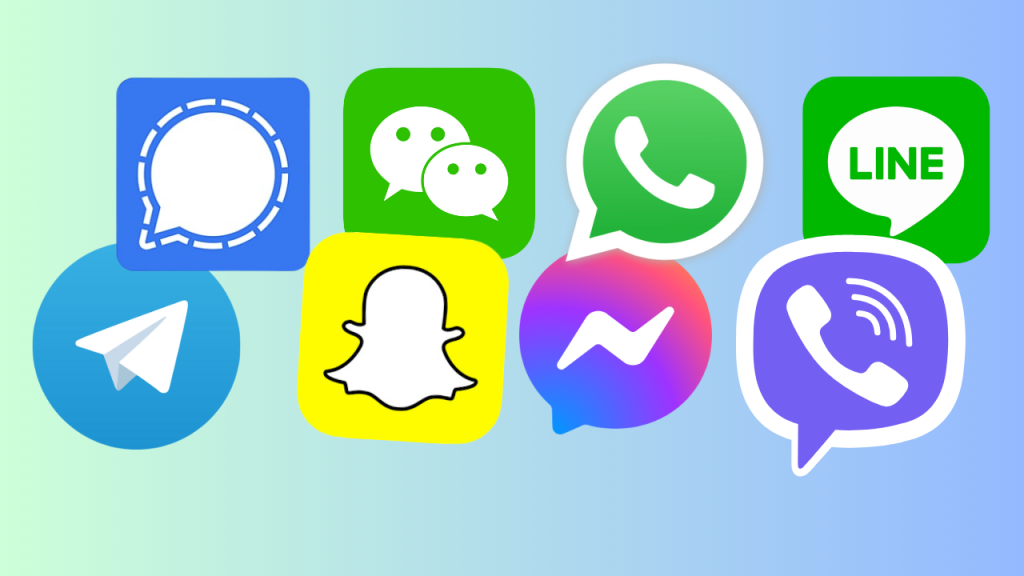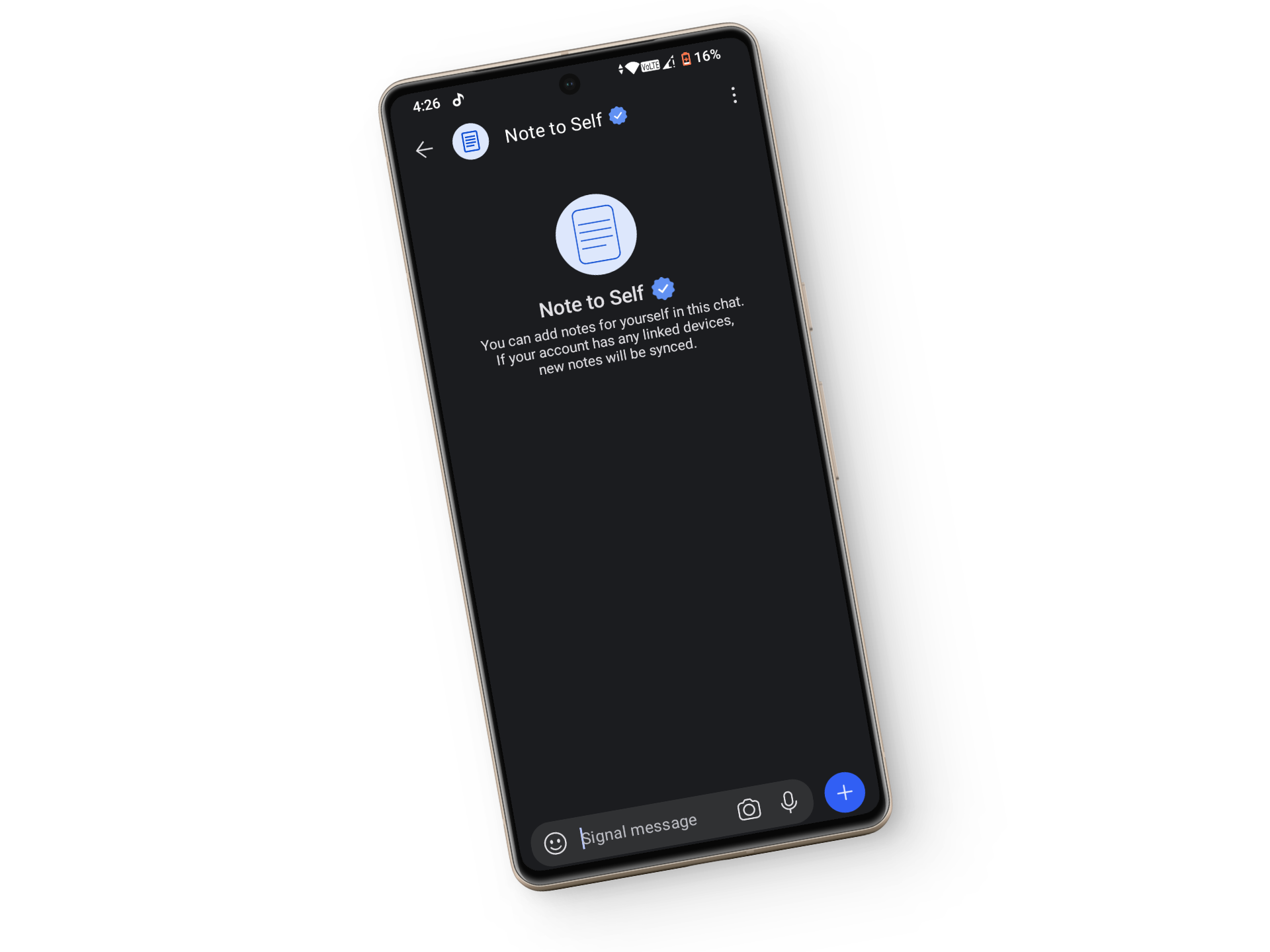The 8 Most Used & Popular Android Messaging Apps
Text Messaging is one of the most widely used communication methods around the world. Over the years, it has evolved from simple SMS messages to feature-packed apps that let users send memes, voice-recorded messages, update statuses, and much more.

With so many messaging apps available, each offering features like video calls and file sharing, choosing just one can be overwhelming. That’s why, in this article, we’ve compiled a list of the 8 most popular Android Messaging Apps for 2024, helping you find the one that best suits your needs. Let’s get started!
1. WhatsApp — Most Popular Messaging App
WhatsApp is the most popular OTT messaging app in much of the world and is free to use. Initially launched in 2009 by two ex-Yahoo employees, it was later acquired by Facebook in 2014. Since then, WhatsApp has steadily grown in features and user base. As of 2023, WhatsApp boasts 2 billion monthly active users.

Apart from being a top-notch messaging service, WhatsApp supports photos, videos, voice recording, high-quality audio, and video calls. Users can also enjoy group texting with up to 512 members. In terms of security, WhatsApp ensures end-to-end encryption for all conversations, including file transfers.
WhatsApp continues to grow in popularity, continually rolling out new features like the Communities tab for managing large groups and the Channels feature suitable for one-way broadcasting.
2. WeChat – Most Popular Messaging App in China
Outside of China, you might not have heard of WeChat, but it is China’s most popular messaging app with nearly 1.3 billion monthly active users in 2023. Owned by one of Asia’s largest companies, Tencent, WeChat started as a typical messaging service. Today, it’s used for everything, including payments, booking flights, and sharing moments. WeChat supports voice chatting, picture sharing, and video calling. Unique features include mini-games and “moments” resembling Facebook posts.

Although WeChat is a versatile option, signing up isn’t straightforward as you need an existing user to verify you. Additionally, WeChat isn’t as secure as WhatsApp and lacks encryption that keeps your messages private.
3. Facebook Messenger — Most Flexible Messaging App
If you have a Facebook account, you likely know Messenger. The app is widely used due to its link with Facebook, having about 930 million users globally in 2023. However, you don’t necessarily need a Facebook account to use Messenger; it allows registration with just a mobile number.

Messenger provides all essential messaging features along with fun extras like stickers, GIFs, and emojis. The app also has a camera feature similar to Snapchat, allowing you to use various filters, and supports posting stories both on Messenger and Instagram.
However, Messenger lacks end-to-end encryption by default, making regular conversations vulnerable to third parties. To ensure privacy, you can activate Secret Conversation to enable encryption on both ends.
4. Telegram — Best for Large Group Chats
Telegram might appear as a simple messaging service similar to WhatsApp and Messenger, offering text messaging, voice and video calling, file sharing, and more. However, it is loaded with features that allow you to create large communities of up to 200,000 members or channels with no subscriber limit. There’s even a media editor option.

Telegram’s security works by encrypting your regular chats, storing them on their servers, and then decrypting messages for readability. You can also set self-destruct timers on messages, making them disappear after a while, and enable secret chats that aren’t stored in the cloud.
In 2022, Telegram introduced a premium subscription that offers additional features like chat pinning, larger file uploads (up to 4 GB), the ability to join more groups, and a voice-to-text conversion feature.
5. Snapchat — Most Popular Among Youngsters
Initially, Snapchat was an instant hit with younger generations, drawing millions with features like self-deleting photos and fun filters. Though it’s a social network, it remains popular for messaging, boasting nearly 650 million monthly users as of 2023.

Snapchat emphasizes media messages, as users send “snaps” to each other. It supports personalized Bitmojis and group chats of up to 200 members. Moreover, the introduction of Snapchat Web allows users to access chats from their PC or Mac.
6. Viber — Best Alternative to WhatsApp
A notable alternative to WhatsApp is Viber, a comprehensive messaging app with about 2 million monthly active users worldwide. Viber includes core messaging features like photo sharing and video calls, group chats with up to 250 members, and built-in GIFs and stickers to make conversations more engaging.

Viber features Channels and Communities, inspiring WhatsApp’s similar features. While individual chats enjoy end-to-end encryption, Channels and Communities do not.
A standout feature of Viber is Viber Out, enabling users to make international calls to any mobile or landline for just $5.99 per month. Additionally, the new ChatGPT Powered AI bot enhances the experience by assisting with questions or even image creation.
7. Line — Most Popular Messaging App in Japan
Line is a leading social platform in Japan, with nearly 68 percent of its population using the app. Besides YouTube, no other social media network has come close to Line’s numbers in Japan.

Line has undergone significant changes since its inception as a disaster-response line. Today, it is a “super app” similar to WeChat in China, offering text messaging, voice and video calls, banking, shopping, healthcare services, travel agents, and more.
Line is also a news and entertainment source, providing access to articles, news, songs, games, and even manga. The app uses end-to-end encryption for all messages and calls.
8. Signal — Most Secure Messaging App
If security is your priority in a messaging service, Signal is the best choice. Signal Private Messenger has been a trusted service for years, offering everything from simple texting to picture and document sharing, and even group chats with up to 1,000 people.

Signal uses end-to-end encryption for every message, employing the same encryption protocol used by WhatsApp, developed by Open Whisper Systems. Users can set expiration dates on messages, making them irrecoverable after expiration. Additionally, the “Note to Self” feature offers a handy way to store things privately.

What sets Signal apart is its capability to handle both data messaging and SMS within one app, automatically sending text messages to contacts who don’t have the app installed.
 Reviewed by
Reviewed by 




